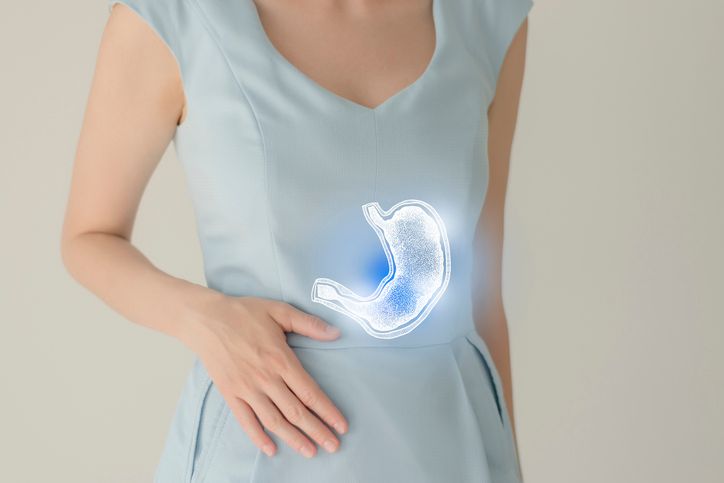- Home
- Trend
- Weight Loss Strategies
- Acne Tips
- Hair Health Information
- Blemish Removal Tips
- Acne Scar Removal Tips
- Muscle Building Techniques
- Intimate Care Tips
- Postpartum Intimate Care
- Eye Bags Wiki
- Tips for Face Slimming
- Secret of Permanent Hair Removal
- Breast Enlargement Tips
- Cure to Snoring
- Marionette Lines
- Skin-Tightening Secrets

免費體驗
S6 Body Sculpting Treatment
1 Minute Self-Registration
Date should not be before minimal date
See the science behind popular weight loss surgery options like liposuction, gastric bypass and gastric band. Understand their pros and cons for a safe, effective choice.
1
What is Weight Loss Surgery?

Struggling to see results from diet and exercise alone or facing rising obesity-related health concerns? Bariatric surgery, also known as weight loss surgery, might be the breakthrough you need. Far from being just another medical procedure, it's a transformative journey to a healthier you, offering the support and intervention necessary to turn things around, helping you lose weight and improve your quality of life.
2
Benefits and Drawbacks of Weight-Loss Surgery

Weight-loss surgery can fast-track your progress, offering significant health benefits like better diabetes and blood pressure control, enhancing your quality of life. However, it's not without its challenges, including potential side effects, the necessity for ongoing medical follow-ups, and adjusting to new dietary lifestyle permanently. Remember, the cost of surgery can also vary significantly based on your location and insurance coverage. It's important to consider these factors and discuss them with your surgeon or healthcare provider when deciding if surgery is the most effective way to lose weight for your health condition.
3
2 Main Types of Weight Loss Surgery Available

When it comes to weight loss surgery, there are essentially two routes. One involves surgeries like sleeve gastrectomy, which reduce your stomach size, leading to early fullness and reduced amount of food consumption. The other path includes procedures like gastric bypass, altering nutrient absorption by rerouting part of the small intestine. These approaches are designed to significantly reduce your body weight by changing how much you eat and how your body handles food, promoting long-term weight loss.
Here are the 10 most popular and effective surgical weight loss treatments:
Option 1: Sleeve Gastrectomy
Sleeve gastrectomy significantly reduces your stomach size, leading to early fullness and reduced food intake, which could improve metabolic syndrome symptoms. This method, less complex than others, offers substantial weight loss but is irreversible, carrying risks like nutritional deficiencies and possible surgical complications. It's a type of bariatric surgery that may be recommended for those who have tried to lose weight through traditional means like diet and exercise but have not been able to lose enough weight to improve their health.
Option 2: Gastric Bypass Surgery (Roux-En-Y Gastric Bypass)
Gastric bypass significantly minimizes your stomach's size and reroutes it to the small intestine, limiting food intake and calorie absorption, leading to notable weight loss. This type of bariatric surgery has the potential to greatly alleviate obesity-related health issues but comes with drawbacks, including the risk of nutritional deficiencies and the complexity of the procedure. Gastric bypass surgery is often seen as a last resort for those who have been unable to achieve significant weight loss or manage conditions like type 2 diabetes through lifestyle changes alone.
Option 3: Gastric Band Surgery
The gastric band wraps a silicone band around the top part of your stomach, creating a small pouch that limits food intake and promotes gradual weight loss. Its adjustability and reversibility are major benefits, minimizing nutritional risks. However, weight loss may be slower compared to other bariatric procedures, and the band might require adjustments or removal due to slippage, making it a less common choice for bariatric surgery.
Option 4: Liposuction
Liposuction effectively removes fat from targeted areas like the abdomen, thighs, and arms to contour the body. While it fine-tunes your figure, it's not a solution for weight loss or metabolic health issues. Awareness of potential risks, such as infection or uneven results, is important. Maintaining those sculpted outcomes demands a commitment to a healthy lifestyle.
Option 5: Duodenal Switch
The Duodenal Switch (DS) uniquely combines reducing stomach size with rerouting your digestive tract. It proves effective for major weight loss and improving type 2 diabetes. Yet, it demands vigilance with your nutrition to avoid deficiencies, making it crucial to monitor your vitamin intake post-surgery, emphasizing the complexity of bariatric surgery procedures.
Option 6: Fat-Melting Injectable
Fat-melting injectable, a non-surgical option, slowly dissolves stubborn fat, particularly under the chin, with minimal downtime. Achieving your desired results requires patience and possibly multiple treatments, highlighting the diverse approaches to body weight management beyond traditional surgery.
Option 7: Intragastric Balloon
Envision having a balloon in your stomach that occupies space for half a year. This innovative approach reduces your food intake, nudging you towards weight loss and fostering healthier eating habits. It's a testament to the evolving nature of weight management techniques, offering alternatives to open surgery.
Option 8: Gastric Plication
Gastric plication offers a safer alternative to more invasive surgeries, lowering associated risks. However, its long-term efficacy and the possibility for future adjustments are still under investigation, reflecting the ongoing development of bariatric procedures.
Option 9: Endoscopic Sleeve Gastroplasty (ESG)
Endoscopic Sleeve Gastroplasty (ESG) is a minimally invasive procedure that signifies the advancement in weight loss surgery options, providing significant weight loss without the need for open surgery. This method offers faster recovery times and lower risks, though the weight loss achieved might not be as extensive as with other surgical options, highlighting the balance between efficacy and invasiveness in bariatric surgery.
Option 10: Implantable Gastric Stimulation (IGS)
Implantable Gastric Stimulation (IGS) represents a minimally invasive solution, implanting a device that influences stomach nerves to signal fullness sooner. Adjustable and reversible, IGS caters to personal needs, though its effectiveness can vary, underscoring the personalized nature of weight management solutions.
4
How to Choose the Right Surgery

Choosing the ideal weight-loss surgery involves a comprehensive evaluation of your health condition, weight loss aspirations, and lifestyle changes necessary post-surgery. Consulting with a healthcare provider or surgeon is crucial. They'll assess your medical history, discuss bariatric surgery options like gastric sleeve, gastric bypass, and laparoscopic surgery, and help select the type of surgery best suited to your body mass index (BMI) and goals. This selection process ensures the chosen surgery not only effectively aids in weight management but also aligns with your lifestyle, mitigating health risks associated with obesity.

免費體驗
S6 Body Sculpting Treatment
1 Minute Self-Registration
Date should not be before minimal date
5
Preparation and Recovery Process

Preparing for weight-loss surgery is about priming both your body and mind. Adjusting your diet and exercise habits to reduce fat, quitting smoking, and addressing any health conditions are key steps to ensure you're ready for surgery. This holistic preparation paves the way for a smoother recovery and the achievement of your weight-loss objectives, emphasizing the importance of lifestyle changes for successful weight management.
6
Post-Surgery Recovery

Recovery from weight loss surgery varies with each procedure. Typically, there's a short hospital stay followed by a phased return to normal life. You'll start with a liquid diet, gradually moving to solids—a crucial step for healing and adjusting to new eating habits. Success in the long run depends on maintaining a nutritious diet, regular physical activity, and ongoing check-ups with your doctor to monitor progress and address any concerns, underscoring the lifestyle changes necessary for lasting weight loss.
7
How Long Do Weight-Loss Treatment Results Usually Last?

The longevity of your weight loss post-surgery greatly hinges on your dedication to a healthier lifestyle. Surgery kickstarts your journey, but lasting success is achieved through consistent healthy eating, regular physical activity, and keeping up with medical appointments. Commitment to these lifestyle changes not only helps maintain weight loss but also significantly enhances your quality of life, demonstrating that surgery for weight loss is a powerful tool when coupled with long-term lifestyle adjustments.
8
Enjoy Safe, Effortless, Effective Weight Loss: S6 Body Sculpting Treatment

Perfect Medical's S6 Body Sculpting Treatment is your revolutionary path to your ideal silhouette! This advanced, non-invasive solution is your answer to effortlessly dissolve stubborn fat with no weight gain rebound.
During the procedure, high-functioning bio-laser energy targets and melts your excess fat cells. Then, vacuum suction technology speeds up the lymphatic drainage of your now broken-down fatty acids. The S6 treatment targets the most stubborn fat areas including the waist, abdomen, arms, thighs, and more.
Besides fat reduction, the bio-lasers energy also stimulates collagen growth, tightening the skin and reducing the appearance of cellulite, giving you a slim and fit body curve!
The S6 treatment requires no incision, medication or injection, ensuring a risk-free experience. It's more than a treatment—it's a transformation.
Witness an improvement right after the first session and enjoy long-lasting results that can stretch up to three years. With just 10 convenient, painless sessions, you can achieve visible slimming results in the body regions of your choice!
Your dream body awaits. Book online now to get your free trial of the S6 Body Sculpting Treatment, completed with complementary professional body profile analysis.

免費體驗
S6 Body Sculpting Treatment
1 Minute Self-Registration
Date should not be before minimal date
FAQ

Am I a candidate for weight loss surgery?
Eligibility for undergoing bariatric procedures often requires a body mass index (BMI) exceeding 40, or over 35 if accompanied by health issues linked to obesity, like type 2 diabetes or elevated blood pressure. Individuals on the cusp of obesity contemplating this surgical option should seek advice from aesthetic experts.
What are the risks associated with weight loss surgery?
Potential complications from these surgeries can range, including but not limited to, infections, the formation of blood clots, nutrient deficiencies, the occurrence of gallstones, and the risk of developing hernias.
How long is the recovery period after surgery?
The timeframe needed to recuperate post-operation can differ, generally allowing for a return to daily routines between three to five weeks afterwards.
Will I need to follow a special diet after the surgery?
Following the operation, adhering to a meticulously structured nutritional regimen is necessary, beginning with a liquid diet and gradually incorporating solids to ensure long-term nutritional balance and prevent deficiencies.
Will I need plastic surgery after weight loss surgery?
Post-significant weight reduction, some opt for cosmetic procedures, like abdominoplasty or brachioplasty, to eliminate lingering excess skin.








